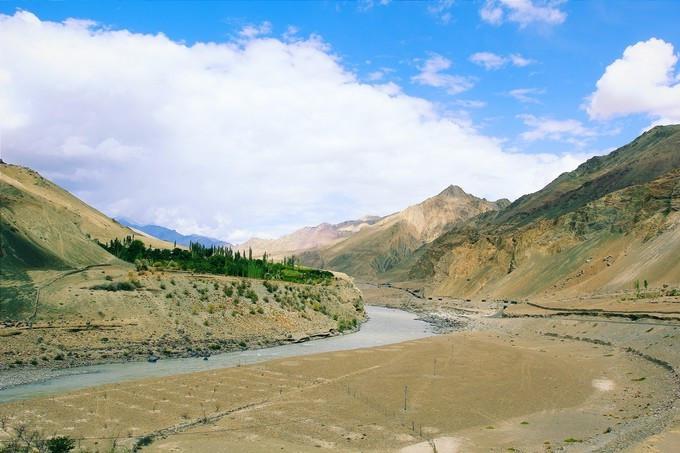Author: Prof. Engr. Zamir Ahmed Awan, Founding Chair GSRRA, Sinologist, Diplomat, Editor, Analyst, Consultant, Advisor, and Non-Resident Fellow of CCG (Center for China and Globalization). (E-mail: awanzamir@yahoo.com).
India over-reacted on OIC’s statement rejecting Indian Supreme Court’s decision on the status of Jammu and Kashmir. Ministry of External Affairs (MEA) spokesperson Arindam Bagchi, used impolite words and unethical language against the OIC. Indian media has bombarded OIC and all peace loving nations around the globe.
On Tuesday, the General Secretariat of the OIC expressed concern over the Supreme Court verdict. In a statement, the General Secretariat also reaffirmed its solidarity with the people of Jammu and Kashmir.
General Secretariat of the Organization of Islamic Cooperation (OIC) expressing concern over the verdict by the Supreme Court of India on 11 December 2023, upholding what they referred to as "the unilateral actions’’ taken by the Indian government on 5th August 2019 that stripped the special status of the territory of Jammu and Kashmir.
"The General Secretariat, about the decisions and resolutions of the Islamic Summit and the OIC Council of Foreign Ministers related to the issue of Jammu and Kashmir, reiterates its call to reverse all illegal and unilateral measures taken since 5 August 2019 aimed at changing the internationally-recognized disputed status of the territory," the OIC statement read.
In addition, the General Secretary of the OIC reaffirmed its solidarity with the people of Jammu and Kashmir in their quest for the right of self-determination and reiterated its call on the international community to enhance its efforts to resolve the issue of Jammu and Kashmir following the relevant United Nations Security Council resolutions.
Meanwhile, Pakistan had raised concerns over this too, Ministry of Foreign Affairs of Pakistan issued a statement:
Pakistan categorically rejects the judgement announced by the Supreme Court of India on the status of Indian Illegally Occupied Jammu and Kashmir (IIOJK).
Jammu and Kashmir is an internationally-recognized dispute, which remains on the agenda of the UN Security Council for over seven decades. The final disposition of Jammu and Kashmir is to be made in accordance with the relevant United Nations Security Council Resolutions and as per aspirations of the Kashmiri people. India has no right to make unilateral decisions on the status of this disputed territory against the will of the Kashmiri people and Pakistan.
Pakistan does not acknowledge the supremacy of the Indian Constitution over Jammu and Kashmir. Any process, subservient to the Indian Constitution, carries no legal significance.
India cannot abdicate its international obligations on the pretext of domestic legislations and judicial verdicts. Its plans to annex IIOJK are bound to fail.
The judicial endorsement of India’s unilateral and illegal actions of 5 August 2019 is a travesty of justice, based on distorted historical and legal arguments.
The Indian Supreme Court’s verdict fails to recognize the internationally-recognized disputed nature of the Jammu and Kashmir dispute. It further fails to cater to the aspirations of the Kashmiri people, who have already rejected India’s illegal and unilateral actions of 5 August 2019. The judgement is yet another manifestation of the pliant judiciary under India’s ruling dispensation.
Restoration of statehood, conduct of State Assembly elections or similar steps cannot serve as a substitute to the grant of the right to self-determination to the Kashmiri people.
The judgement cannot distract the international community’s attention from the gross and systematic human rights violations being perpetrated in IIOJK.
India’s unilateral and illegal measures since 5 August 2019 have been aimed at changing the demographic structure and political landscape of the IIOJK, in flagrant violation of international law and the relevant UN Security Council Resolutions, especially Resolution 122 (1957). They remain a matter of grave concern for Pakistan as their ultimate goal is to convert the Kashmiris into a disempowered community in their own land. These measures must be rescinded to create an environment for peace and dialogue.
Pakistan will continue to extend its full political, diplomatic and moral support to the people of IIOJK for realization of their inalienable right to self-determination.
China said that the Kashmir issue needs to be resolved peacefully following the UN Charter. "China’s position on the Kashmir issue is consistent and clear-out. The Kashmir issue, left from the past, needs to be resolved peacefully and appropriately under the UN Charter, Security Council resolutions and relevant bilateral agreements. Parties concerned need to settle the dispute through dialogue and consultation to maintain regional peace and stability," said Chinese Foreign Ministry spokesperson Mao Ning in response to a query from a Pakistani journalist during their weekly presser.
Kashmir is a disputed territory among China, Pakistan and India. It needed to be resolved under the UN Charter and mutual agreement among the three countries. Any unilateral decision by India is illegitimate and not acceptable by anyone in the world. The UN has passed several resolutions on Kashmir, which India has been rejecting and denying to implement since 7 decades. People of Kashmir were give the legitimated right of self-determination and their freedom struggle is justified. Their resistance against Indian atrocities and brutalities is legitimate. World should stop India in genocide of Kashmiri people.
India must learn, the excessive use of force cannot suppress the brave people of Kashmir. For last 7 decades, India failed to suppress them, and will never succeed in future. The sooner India understand it, the better for them. The ultimate solution is the implementation of UN resolutions in Kashmir, It is mandatory for India to respect the UN and implements its decisions. The only way forward is to implement the UN resolutions and restore peace in the entire region. Let others live in peace, and develop their economy.
(ASIA PACIFIC DAILY)
